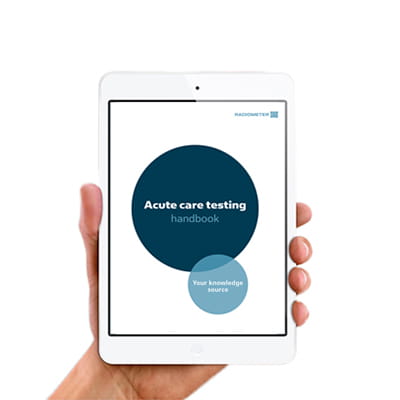Printed from acutecaretesting.org
January 2018
Acid-base and electrolyte disturbance in chronic kidney disease – a themed issue review
Summarized from Kraut J (ed) et al. Acid-base and electrolyte abnormalities in CKD. Advances in Chronic Kidney Disease (ACKD) 2017; 24: 267-342
As the site of production of the hormones: renin, erythropoietin and calcitriol that regulate, respectively, blood pressure, erythrocyte (red blood cell) production and absorption of dietary calcium, the kidneys have significant and disparate endocrine function. Additionally, of course, the kidneys have an excretory function in the formation of urine from filtered blood. Urine is not just a vehicle for excretion of a range of substances; its formation has vital homeostatic significance.
By their ability to continuously adjust both the volume and chemical composition of urine, the kidneys help to ensure that the volume, pH and chemical composition of fluid (both intracellular and extracellular) within the body remains constant. The constancy of this internal environment is essential for cell function and ultimately life itself. This general homeostatic role of the kidney includes preserving two particular aspects of blood chemistry, pH and electrolyte content.
Both the maintenance of blood pH within narrow limits, 7.35-7.45 (i.e. normal acid-base balance), and the maintenance of plasma sodium and potassium concentrations within narrow limits, (135-145 mmol/L and 3.5-5.2 mmol/L respectively), are dependent on normally functioning kidneys.
Given these physiological (homeostatic) aspects of kidney function, it is no surprise that chronic kidney disease (CKD) can be associated with disturbance of both acid-base balance and plasma electrolyte concentration. These complications, which are potential causes of significant morbidity and mortality for patients with CKD, are the sole focus of the September 2017 issue of the journal Advances in Chronic Kidney Disease.
This themed issue comprises nine articles written by experts in the field. Four of these address various aspects of acid-base disturbance in CKD, three address aspects of disturbed potassium homeostasis in CKD, and two address aspects of disturbed sodium homeostasis in CKD.
The four articles addressing aspects of acid-base disturbance discuss in turn: the pathophysiology of acid-base disturbance in CKD; the prevalence and nature (type) of acid-base disturbance observed during the course of CKD; the adverse effects of the most common acid-base disturbance in CKD, metabolic acidosis; and finally, management of metabolic acidosis.
The three articles addressing disturbed potassium homeostasis in CKD discuss in turn: pathophysiology that underpins the potassium disturbance observed in patients with CKD; the prevalence of hyperkalemia and hypokalemia in CKD along with predisposing risk factors and clinical consequences of these two disturbances; and finally, management of hyper- and hypokalemia in CKD patients.
The two articles addressing disturbed sodium homeostasis discuss in turn: the pathophysiology of sodium disturbance in CKD; and the treatment of disorders of sodium balance in CKD patients.
This themed issue represents a very comprehensive up-to-date expert review of acid-base and electrolyte disorders in CKD, including their pathophysiology, epidemiology, adverse consequences, and treatment.
May contain information that is not supported by performance and intended use claims of Radiometer's products. See also Legal info.
Acute care testing handbook
Get the acute care testing handbook
Your practical guide to critical parameters in acute care testing.
Download nowScientific webinars
Check out the list of webinars
Radiometer and acutecaretesting.org present free educational webinars on topics surrounding acute care testing presented by international experts.
Go to webinars







